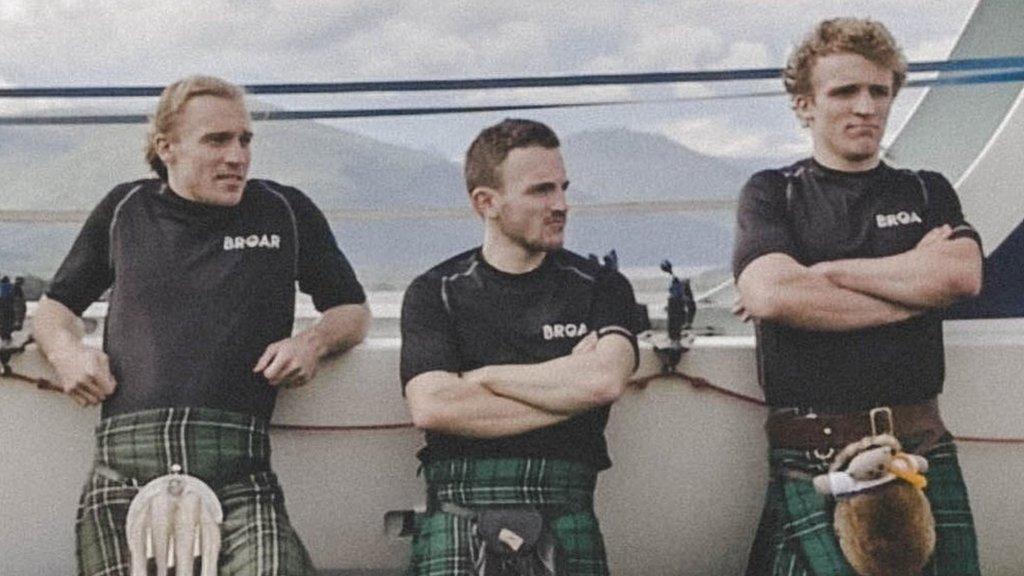We want to smash the Pacific rowing record - using F1 technology
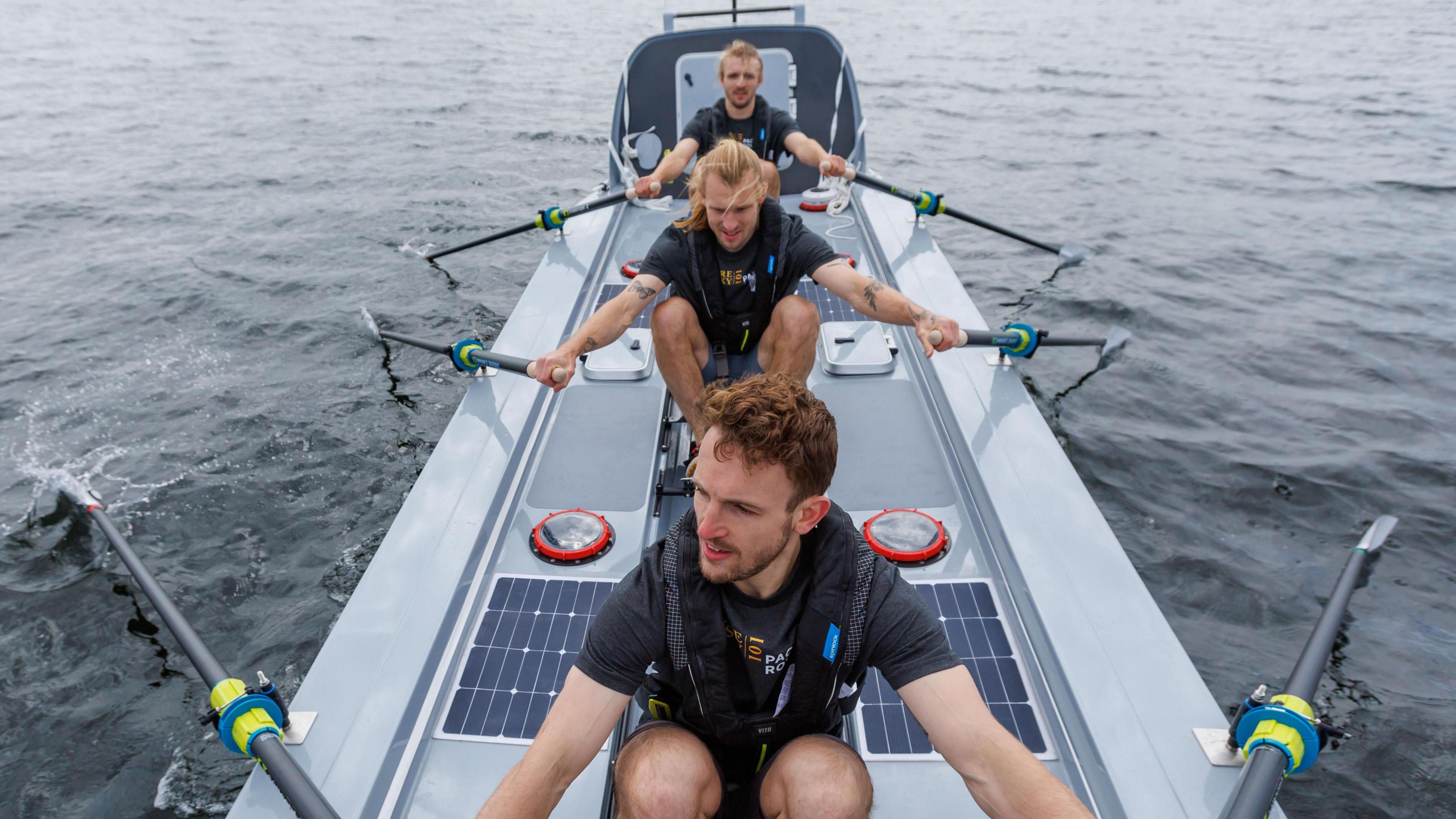
Ewan, Lachlan and Jamie MacLean have been testing their boat in Scottish waters
- Published
Three Scottish brothers are hoping to become the fastest people to row across the Pacific Ocean, after building a superfast, ultra lightweight boat.
Jamie, Ewan and Lachlan MacLean have harnessed technology used by Formula 1 teams to manufacture the 280kg (44 stone) carbon fibre vessel.
The trio, from Edinburgh, made headlines in January 2020 when they rowed across the Atlantic Ocean in just 35 days. Their fibreglass boat weighed one tonne.
Now they hope to cross the Pacific in about 120 days - 42 days quicker than the record.
And they intend to become the first team to make the 9,000 mile crossing without stopping to pick up food supplies.
Jamie, 30, told BBC Scotland News their new boat - the first of its kind - will enable them to consistently travel faster than they did crossing the Atlantic.
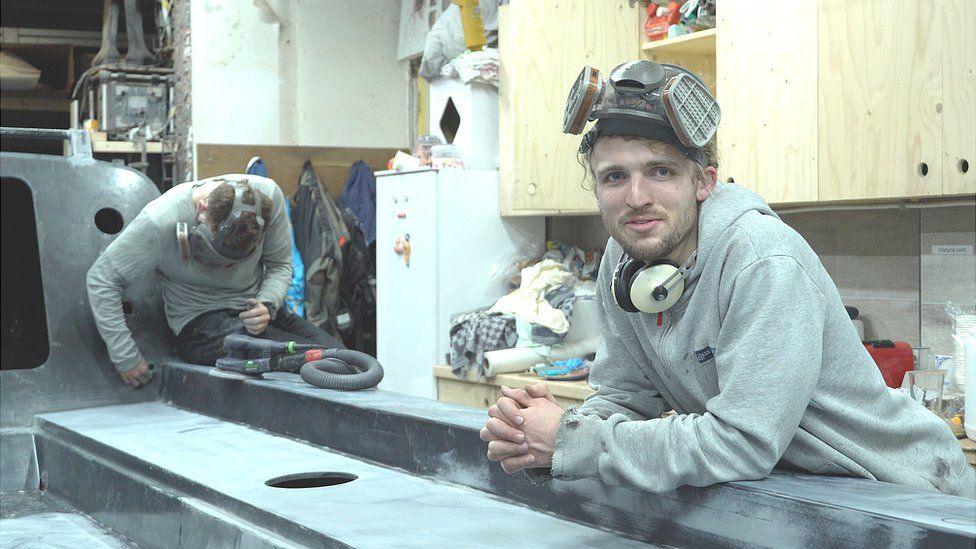
The MacLean brothers helped specialists build the super fast boat
"We are going to be able to average between 0.5 and one knot [one nautical mile per hour] faster all the time," he said.
"Our average speed for the Atlantic was 3.3 knots but if you added a knot on to that you could shave off potentially months on a Pacific crossing, which is three times further."
The brothers will embark on The Rare Whisky 101 Pacific Challenge next May, when they will leave Lima in Peru bound for Australia.
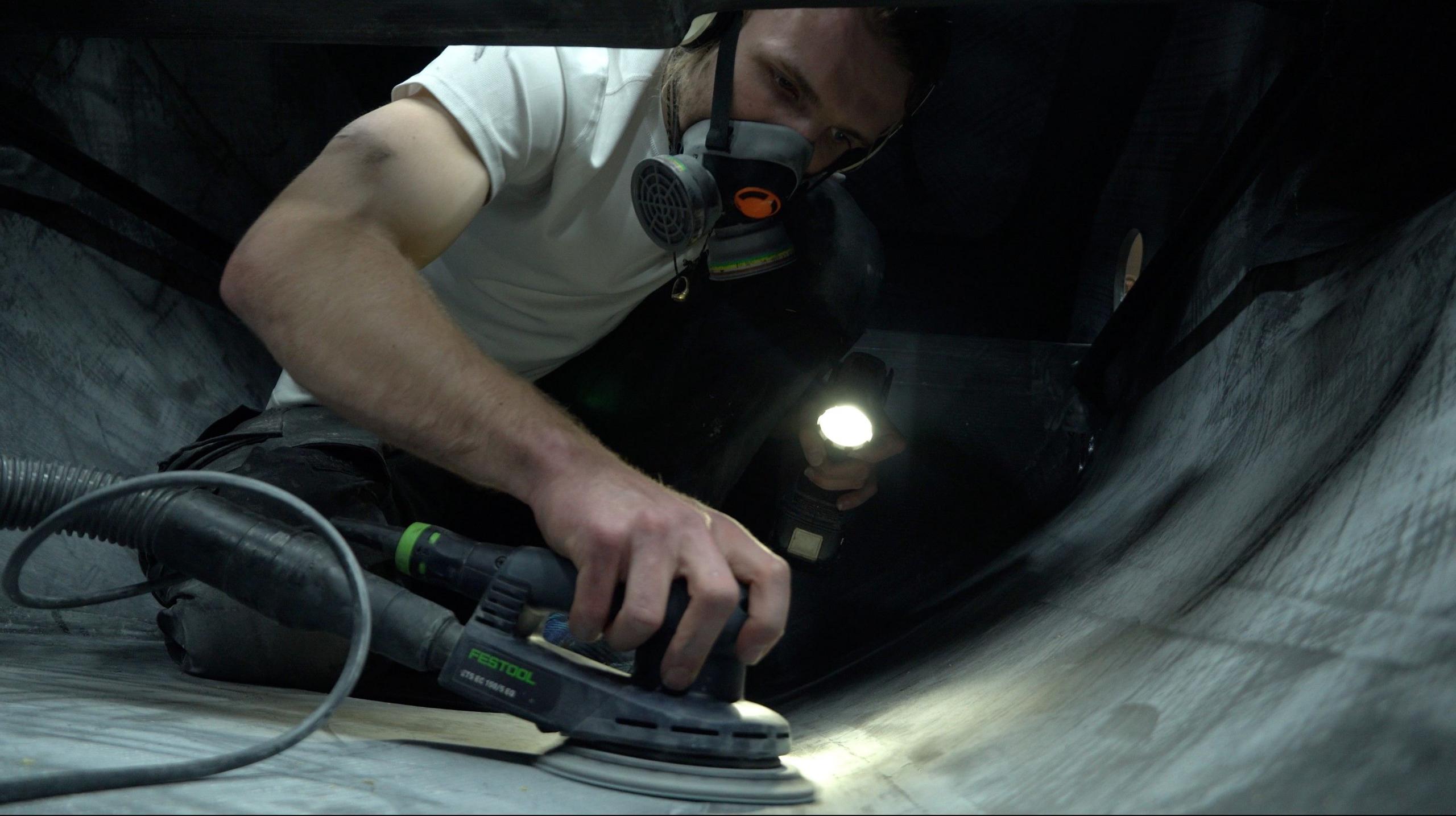
They have been working on the vessel for the last year with specialists in The Netherlands.
Ewan, 32, an engineer for Dyson, said the boat was made using a process normally used in the construction of F1 cars or jet wings.
He said the hull and the deck were fabricated using a machine called an autoclave - essentially a high pressure oven.
It meant that much less epoxy resin, which is very heavy, was needed to bond the carbon fibre and the foam core.
Ewan said: "There are carbon equivalents to the fibreglass boat we were in previously.
"They would save a bit on the weight but if you compare gram for gram there isn't that much difference to be honest. The boats made from carbon are much stronger.
"Usually the vast majority of the weight from a carbon fibre lay up is from the resin but when you use an autoclave you can have a much lighter product at the end."
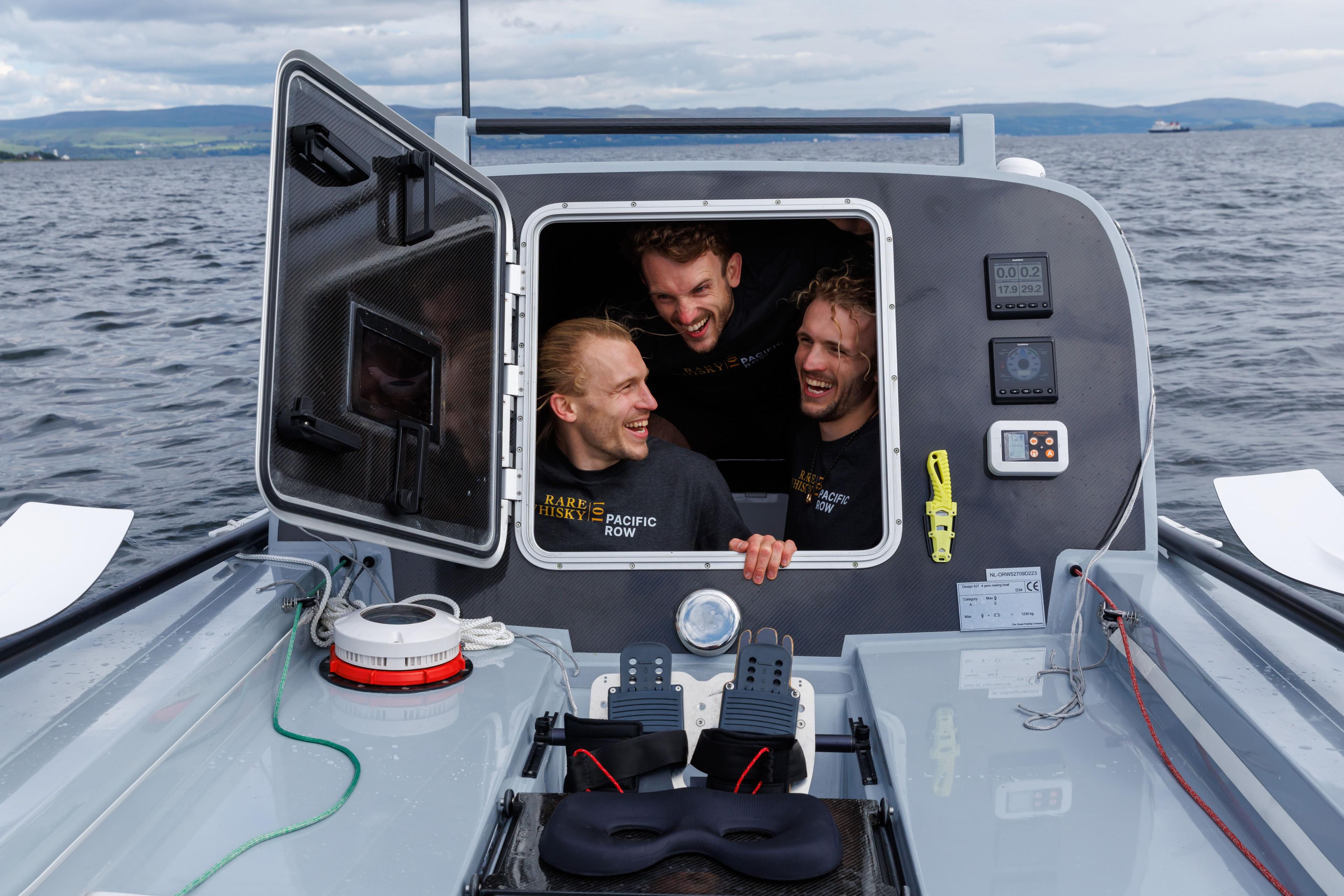
Jamie denied the lighter boat would give them an unfair advantage over other teams who have been unable to make the crossing without stopping to resupply.
Previously only solo rowers have been able to complete the crossing without stopping to take on board more food.
"I don't know if innovation is cheating," he said.
"The appeal to doing the Pacific is it's a longer crossing, it's the same but it's also very different to the Atlantic, it's the same sport but it will be a different beast."
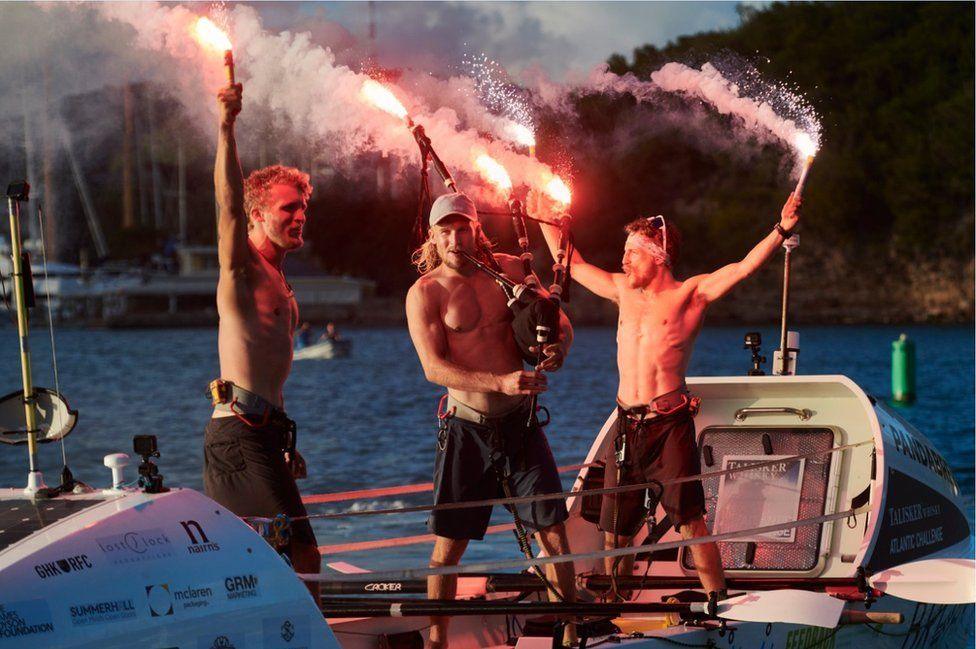
The brothers set a series of records when they rowed across the Atlantic in 2020
Jamie, Ewan and Lachlan became the first three brothers to row any ocean when they crossed the Atlantic in 2020.
They also took the record for the youngest trio and the fastest trio to ever row the Atlantic - but their record of 35 days, nine hours and nine minutes was beaten by two hours last year.
Other modifications to the boat include a bulletproof mat for the sleeping pod to stop marlin strikes piercing them.
It is thought marlin, which have a spear-like snout or bill, do not see rowing boats when they are hunting the fish that shelter underneath them as the hulls are a similar colour to the sky.
The MacLean brothers who trialled the boat for the first time this week off the coast of Scotland are also trying to work out how they will be able to remove barnacles during the challenge without having to jump into the water as the Pacific Ocean is Great White shark territory.
Jamie said: "Barnacles cause a huge amount of drag. You would lose knots of speed if you let the barnacles build up. It's amazing how quickly they grow and they get quite big too."
Related topics
- Published17 January 2020
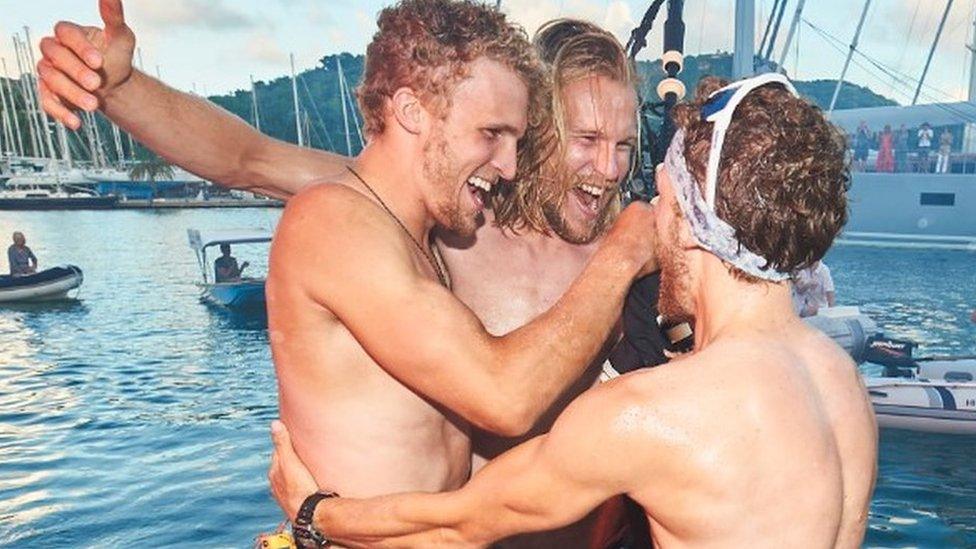
- Attribution
- Published11 December 2019
